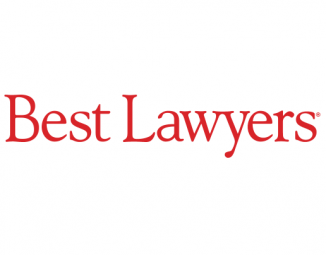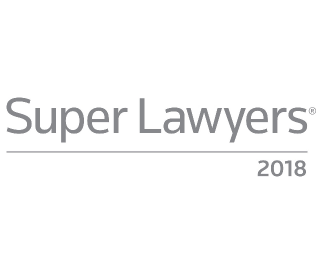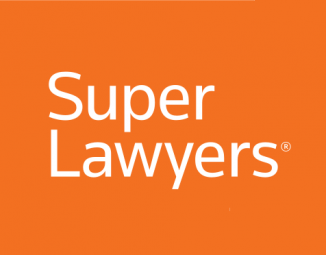A Look At Filial Responsibility In Pennsylvania And New Jersey
The laws surrounding filial support are complicated, but they are not new. Filial support laws were derived from England’s 16th century “Poor Laws.” At one time, as many as 45 U.S. states had statutes obligating an adult child to care for his or her parents. Some states repealed their filial support laws after Medicaid took a greater role in providing assistance to elderly parents without means. Other states did not repeal, and, currently, 29 states, including Pennsylvania, New Jersey, and Puerto Rico have filial responsibility laws on their books. In most states, these laws are rarely enforced. However, there is one notable exception – Pennsylvania.
Pennsylvania Act 43 of 2005 resurrected the old filial support laws that made adult children financially responsible for payment of their parents’ long term medical costs. Act 43 became a part of Pennsylvania’s Domestic Relations Law in 23 Pa. Cons. Stat. Chapter 46, entitled “Support of the Indigent.” Unfortunately, Act 43 does not specifically define “indigent” and, as such, there is no true definition of the term. Prior case law may assist in identifying facts and circumstances under which one may be considered “indigent.” Arguably, however, any situation where all or a portion of an individual’s care costs are not being paid (for any number of reasons) could make a family member open to a claim for filial support.
In past Pennsylvania decisions, fraudulent conduct was a necessary finding before a child would be charged with a parent’s care. However, in 2012, the Pennsylvania Superior Court in Health Care & Retirement Corporation of America vs. Pittas, 46 A.3d 719 (Pa.Super 2012), upheld a lower court ruling that allowed a nursing home to obtain payment from the son of Maryann Pittas for her nearly $93,000 nursing home bill after she fled the country without paying her bill. Maryann Pittas had applied for Medicaid but had left the country before there was a decision on her application. The nursing home then sued her adult son, John Pittas, for payment. Unlike previous rulings, the Superior Court made no finding that John had engaged in any fraudulent transfer to divert or hide his mother’s assets.
Things took an interesting turn when, in 2014, the Hamilton Law Group pursued Peg and Bob Mohn of Northampton County for their deceased son’s unpaid medical bills. Sure enough, 23 Pa. Cons. Stat. § 4603(a)(1) does include a provision for “reverse” filial responsibility for debts of children. However, in May 2015, the Attorney General sued the Hamilton Law Group, and its president, James A. Havassy, claiming their debt collection practices violated the Unfair Trade Practices and Consumer Protection Law and the Fair Credit Extension Uniformity Act.
According to the complaint, the Commonwealth’s filial responsibility law was cited in attempts to collect medical debts from family members, but the Attorney General notes that the law only applies in situations where public funds have been spent, and does not apply to regular debt collections. Additionally, 23 Pa. Cons. Stat. § 4603(a)(2) provides that in order to establish a responsibility to provide financial assistance for an individual, (i) the debtor must be indigent and (ii) the person targeted for payment must have the ability to pay.
Contrary to Pennsylvania, during the last 50 years there has not been any case law in New Jersey which seeks to enforce the state’s filial responsibility law. The New Jersey Statute, N.J.S.A. §§ 44:1-139, 44:4-100, imposes the determination of whether a relative is “chargeable by law for [a poor indigent person’s] support” on the municipal director of welfare and the county welfare board. Contrary to Pennsylvania, the New Jersey law provides a definition of a “poor” or “indigent” person as one “who is unable to maintain himself or those dependent upon him.” However, the statutes are similar and the concept of “reverse” filial responsibility does exist in New Jersey, but is limited to children under the age of 55.
In addition to the public right of claim by the municipal director of welfare and county welfare boards, there is a private right of action in New Jersey. The existence of a public right of action is contrary to the original statute and early case law in which the statute was applicable once an individual applied for and was found eligible to receive public assistance. However, in 1931, in Glassman v. Essex County Juvenile Court, the New Jersey Supreme Court compelled three adult sons to contribute to their father’s support and stated that the statute, as revised, permitted a private cause of action. This concept was similarly applied in Monmouth County Welfare Board v. Coward, where the New Jersey Superior Court held a son liable for one-third of his mother’s welfare allowance. In each of these cases, the state was relieved of its financial duty, as opposed to a private institute receiving funds for the care of an individual. Accordingly, the court in Pavlick v. Terenski found that not only may the individual himself or herself bring an action for support, but “two residents of the municipality or county” where the individual resides may bring an action. Thus, while not done to date, a residential facility through two of its employees domiciled in the same municipality or county could conceivably bring suit against a relative chargeable for funds expended on behalf of the indigent person.
In conclusion, with the ever-increasing costs of long-term care, the dawning of a new era of imposing responsibility for parents’ debt on their children may well be on the horizon. With the current implementation of the Pennsylvania law and the potential breadth of the New Jersey statute, nursing homes and other health care providers now appear to have an incentive to utilize the court system to compel children to either help a parent financially or be at risk for covering the cost of the parent’s care. As such, adult children should be vigilant about the contracts their parents enter into and how they themselves may be affected.
A Look At Filial Responsibility In Pennsylvania And New Jersey.pdf (p.22)
Barbara E. Little devotes her practice to all aspects of estate planning (including gifting through trusts or protecting benefits through supplemental needs trusts), estate and trust administration, estate controversies, business succession planning, nonprofits and family foundations. Ms. Little helps clients plan for their future, protect their assets, and achieve tax savings toward the ultimate goal of creating a peace of mind and their legacy. Ms. Little is licensed to practice in Pennsylvania and New Jersey.
Janene B. Reilly assists clients in estate planning and estate and trust administration. She has experience drafting wills, durable powers of attorney, advanced health directives, living wills, revocable and irrevocable trusts, special needs and supplemental benefits trusts. Ms. Reilly also implements estate and gift plans in order to minimize or eliminate federal estate tax for high net worth individuals. Ms. Reilly is licensed to practice in Pennsylvania.
Reprinted with permission from PHILADELPHIA ESTATE PLANNING COUNCIL, VOL. XXV, NO. 2, Winter 2015-2016 newsletter.




